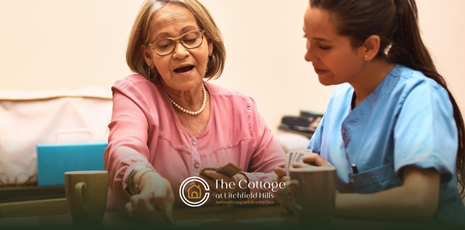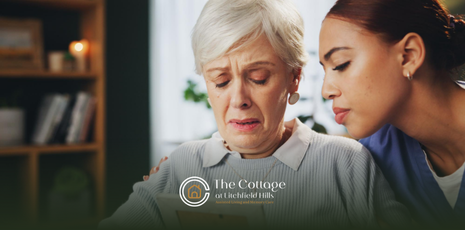Tips for Supporting Senior's Mental Health

Key Highlights
- Mental health is just as important as physical health for seniors
- Social connection plays a major role in emotional well-being
- Physical activity and healthy habits improve mood and reduce stress
- Creative outlets and hobbies provide purpose and engagement
- Professional support may be necessary for ongoing mental health needs
When we think about aging, we often focus on physical health—mobility, nutrition, and managing chronic conditions. But just as important is senior mental health, which directly affects overall quality of life. Emotional well-being can influence everything from memory and focus to physical strength and immune system function.
Unfortunately, seniors face unique challenges such as retirement, loss of loved ones, or limited mobility, all of which can contribute to loneliness, anxiety, or depression. That’s why it’s essential to learn effective tips for supporting senior’s mental health.
This guide will cover practical strategies that families, caregivers, and seniors themselves can use to nurture emotional wellness and encourage positive aging.
Why Senior Mental Health Matters
Mental health has a profound impact on seniors’ overall well-being. Studies show that good mental health:
- Improves resilience during illness or recovery
- Enhances memory and cognitive function
- Strengthens social relationships
- Encourages independence
- Reduces the risk of chronic diseases worsened by stress
Conversely, untreated mental health challenges may lead to isolation, malnutrition, or even decline in physical health. Supporting seniors’ emotional well-being is therefore an important part of healthy aging.
Common Mental Health Challenges in Seniors
While every individual is unique, some common concerns among older adults include:
- Loneliness and social isolation
- Depression after loss or lifestyle changes
- Anxiety about health, finances, or independence
- Memory loss or cognitive decline
- Stress related to caregiving needs or medical conditions
Recognizing these challenges early allows families and caregivers to provide timely support.
Practical Tips for Supporting Senior’s Mental Health
1. Encourage Social Connections
Isolation is one of the biggest risks for poor mental health in older adults. To combat this:
- Encourage phone or video calls with family and friends
- Support group activities, clubs, or senior centers
- Foster intergenerational connections, such as visits from grandchildren
- Explore volunteer opportunities that provide a sense of purpose
2. Promote Physical Activity
Exercise isn’t just for the body—it’s also for the mind. Physical activity releases endorphins that improve mood and reduce stress. Seniors can try:
- Daily walks or light aerobics
- Yoga or tai chi for relaxation
- Swimming or water aerobics for low-impact fitness
- Chair exercises for those with limited mobility
3. Support Healthy Eating
Nutrition plays a major role in brain health. A balanced diet helps regulate mood and supports cognitive function. Key elements include:
- Plenty of fruits and vegetables
- Whole grains
- Omega-3 rich foods like salmon or walnuts
- Adequate hydration
4. Foster Lifelong Learning
Keeping the brain active is a great way to prevent decline and boost self-esteem. Encourage:
- Reading or book clubs
- Learning new hobbies such as painting or gardening
- Online courses designed for seniors
- Puzzle games or brain-training apps
5. Create a Structured Routine
Having a predictable daily routine provides comfort and reduces anxiety. Routines can include:
- Scheduled meals and activities
- Regular exercise
- Time for hobbies or relaxation
- Sleep and wake times
6. Provide Emotional Support
Active listening and empathy go a long way. Offer reassurance, validate feelings, and create opportunities for open conversations. Sometimes, simply being present makes all the difference.
7. Encourage Creative Expression
Art, music, and writing can be powerful outlets for self-expression. Benefits include stress relief, improved mood, and opportunities for social interaction. Examples include:
- Painting, knitting, or woodworking
- Music therapy or playing instruments
- Journaling or storytelling sessions
8. Consider Professional Support
When mental health challenges become overwhelming, professional help is essential. Options include:
- Therapy or counseling sessions
- Support groups for grief, anxiety, or depression
- Medical evaluations for medication management
The Role of Caregivers in Supporting Senior Mental Health
Caregivers play a central role in promoting well-being. To be effective, they should:
- Watch for signs of depression, withdrawal, or mood changes
- Encourage participation in social and physical activities
- Maintain patience and understanding
- Take care of their own mental health to avoid burnout
Lifestyle Habits That Boost Mental Health
| Healthy Habit | Mental Health Benefit |
|---|---|
| Regular exercise | Reduces stress, improves mood |
| Balanced diet | Supports brain health and energy |
| Consistent sleep | Improves focus and emotional balance |
| Social engagement | Reduces loneliness and isolation |
| Hobbies/creativity | Provides purpose and joy |
Overcoming Stigma Around Mental Health in Seniors
One barrier to proper care is the stigma surrounding mental health. Many seniors grew up in a time when these issues weren’t openly discussed. Families can help by:
- Normalizing conversations about emotional health
- Encouraging regular mental health check-ups
- Treating mental health as equally important as physical health
Final Thoughts
Supporting senior mental health is about creating a life filled with purpose, connection, and joy. With the right strategies—such as fostering social bonds, encouraging physical activity, promoting healthy eating, and offering emotional support—seniors can thrive mentally and emotionally.
If you’re seeking a senior living community that prioritizes both physical and emotional well-being, The Cottage at Litchfield Hills provides compassionate care, engaging activities, and a supportive environment designed to enhance seniors’ quality of life. Contact us today!
Frequently Asked Questions
What are the early signs of depression in seniors?
Common signs include loss of interest in activities, changes in appetite, sleep difficulties, withdrawal from social interaction, and persistent sadness.
How can family members support senior mental health from afar?
Regular calls, video chats, sending letters, and arranging visits help reduce feelings of isolation and strengthen connections.
Are hobbies really beneficial for mental health in seniors?
Yes. Hobbies provide purpose, improve mood, and stimulate cognitive function, which helps protect against decline.
Can physical activity help with anxiety in older adults?
Absolutely. Exercise releases endorphins, reduces stress hormones, and promotes relaxation.
When should professional mental health support be considered?
If seniors experience ongoing sadness, withdrawal, or anxiety that affects daily life, it’s time to seek professional help from a doctor or counselor.
Sources:
- https://www.who.int/news-room/fact-sheets/detail/mental-health-of-older-adults
- https://www.nimh.nih.gov/health/topics/older-adults-and-mental-health
- https://pmc.ncbi.nlm.nih.gov/articles/PMC7437541/
- https://www.webmd.com/depression/exercise-depression
- https://medlineplus.gov/nutritionforolderadults.html
- https://www.cdc.gov/healthy-aging/about/depression-aging.html






